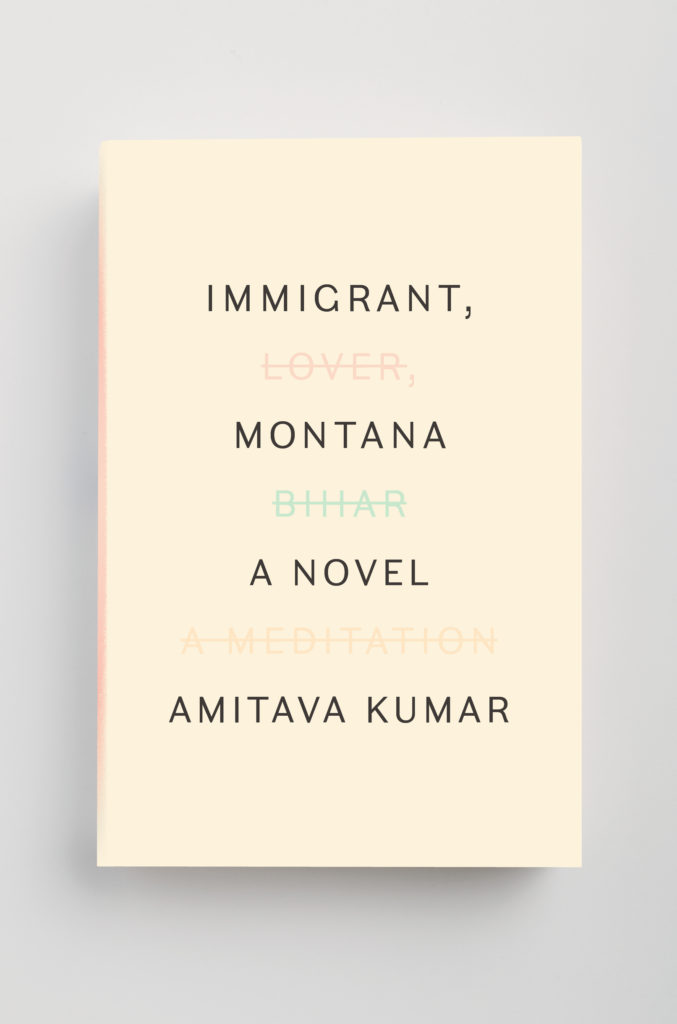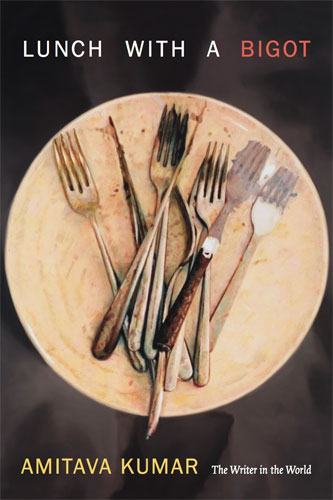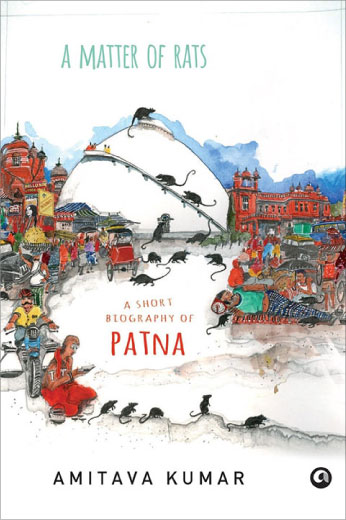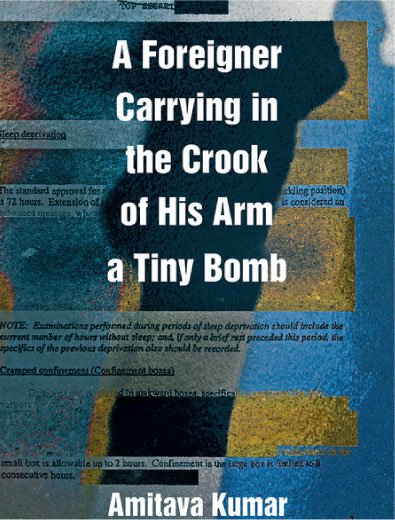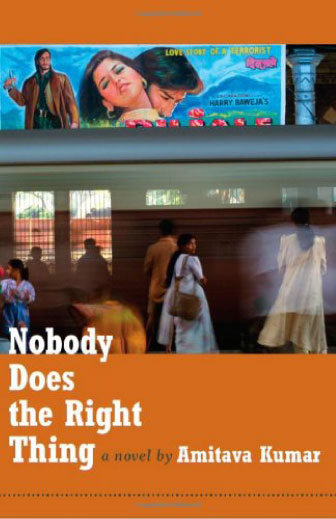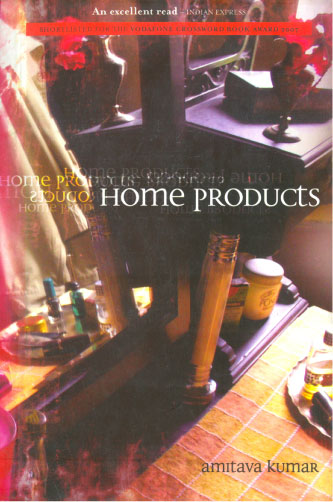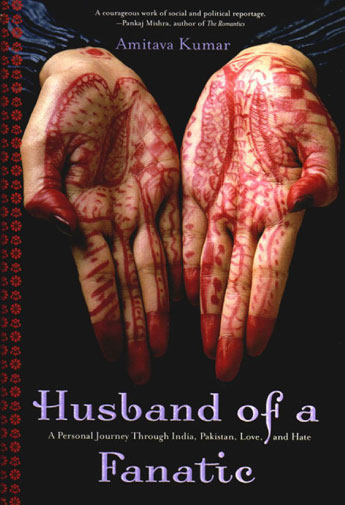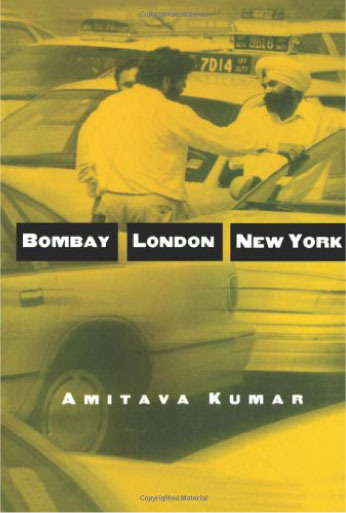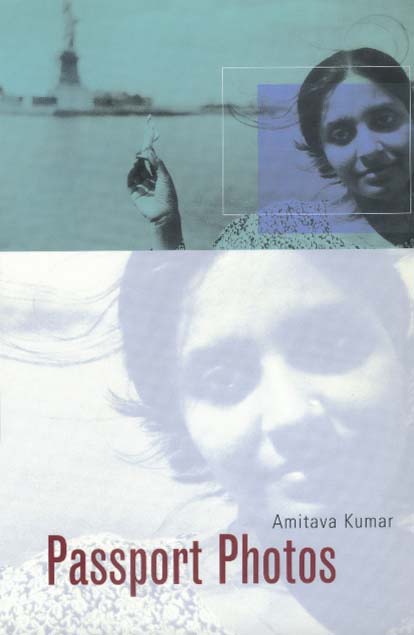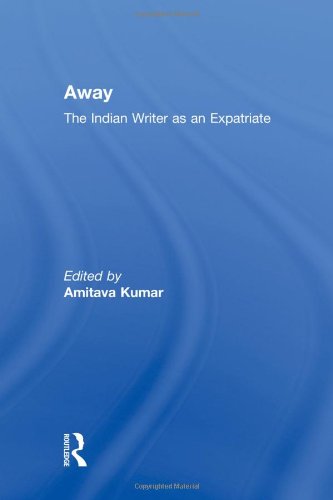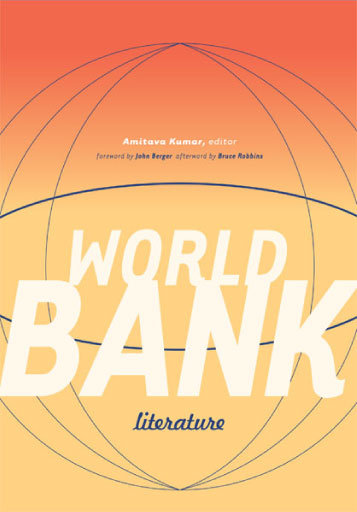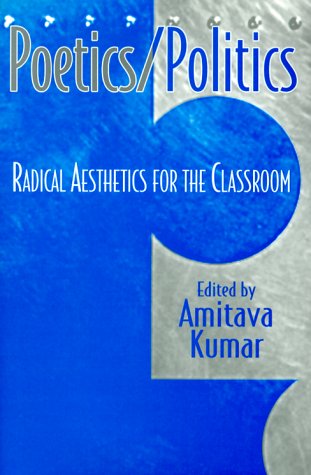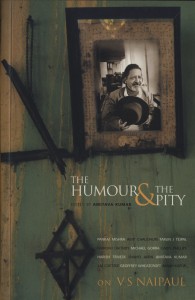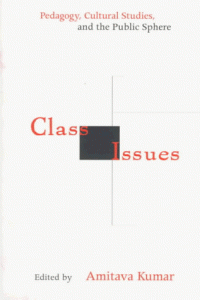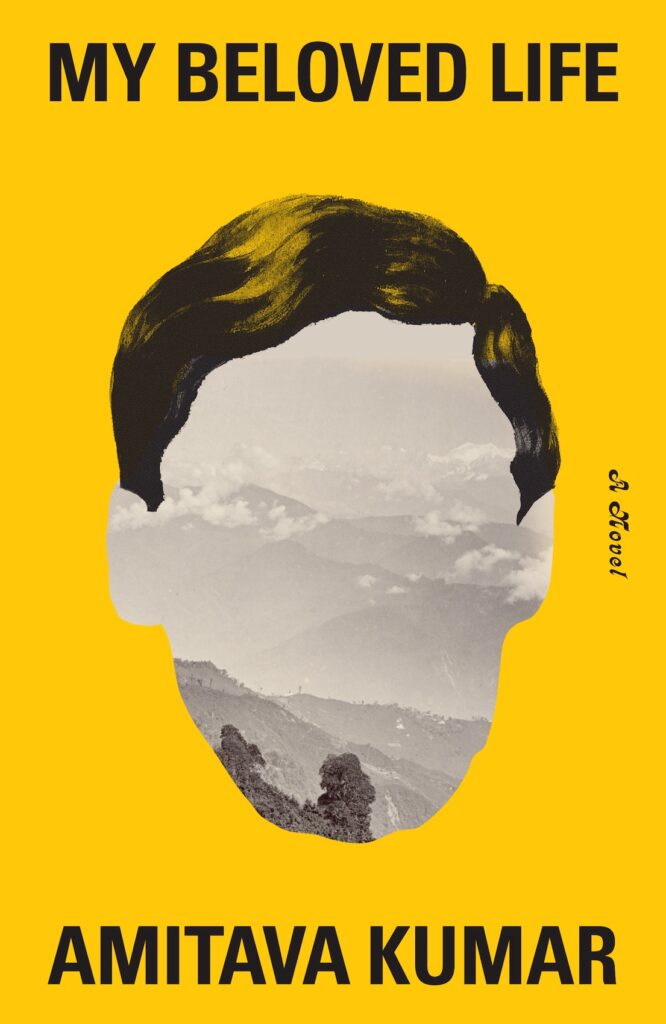
An absorbing, exceptionally moving novel that traces the arc of a man’s life, an ordinary life made exceptional by the fact that he has loved and has been loved in turn.
Jadunath Kunwar’s beginnings are humble, even inauspicious. In 1935 in a village near George Orwell’s birthplace, Jadu’s mother, while pregnant with him, nearly dies from a cobra bite. When we see Jadu again, he is in college, meeting the Sherpa who first summited Everest and wondering what it means to be modern. As his life skates between the mythical and the mundane, and as changes big and small sweep across India, Jadu finds meaning in the most unexpected places. He befriends poets and politicians. He becomes a historian. And he has a daughter, Jugnu, a television journalist with a career in the United States—whose own story recasts the past in a new light. Piercing, fleet-footed, and undeniably resonant, here is a novel from a singularly gifted writer about how we tell stories and write history, how individuals play a counterpoint to big movements, how no single life is without consequence.
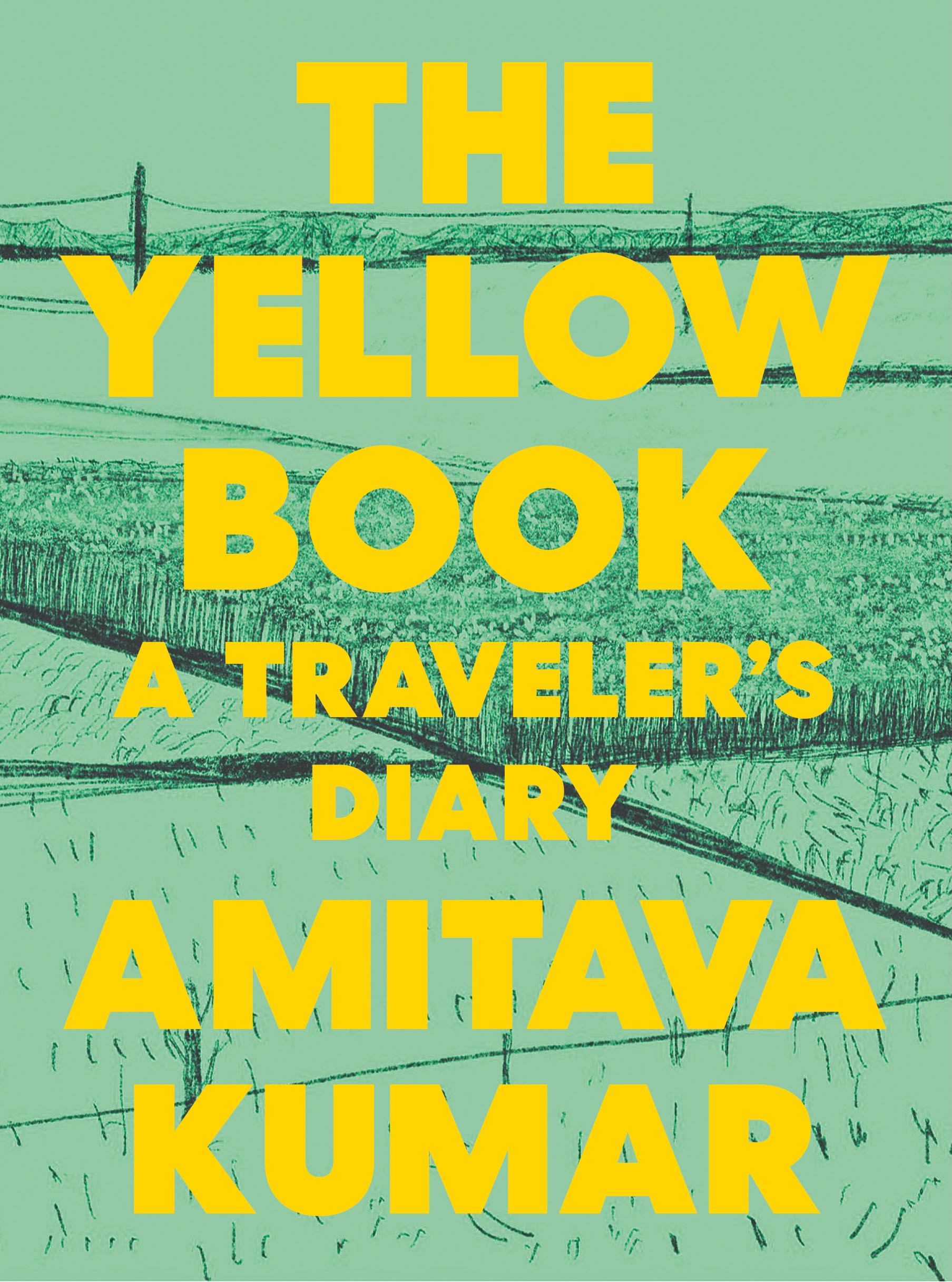
One day passes. Then another. A whole succession of days turning into months and years. How to mark our separate days? The places we have been. Our individual passions, our pain. Against the blurring of years, the clarity of a record. And even amidst crises, how to keep creativity alive?
Also, how to stop time?
After the first wave of Covid had passed, the lockdown was lifted and travel resumed in earnest. Amitava Kumar found himself in London with a group of American students on a study tour-in the midst of the Omicron wave. A year later, he was in India, in his native Motihari among other places. Meanwhile, Russia attacked Ukraine and Rushdie was assaulted with a knife in upstate New York. Amitava kept a journal-to record the times he was living through and how he would like to remember them.
In these pages, through words and drawings, an acclaimed author and artist reveals how a writer observes the world around us-and the world inside us. The Yellow Book, like The Blue Book, shows us how we can put together not just a journal or a book, but also how we assemble a life; and, in our troubled times, why we must plant memories and continue to believe in spring.
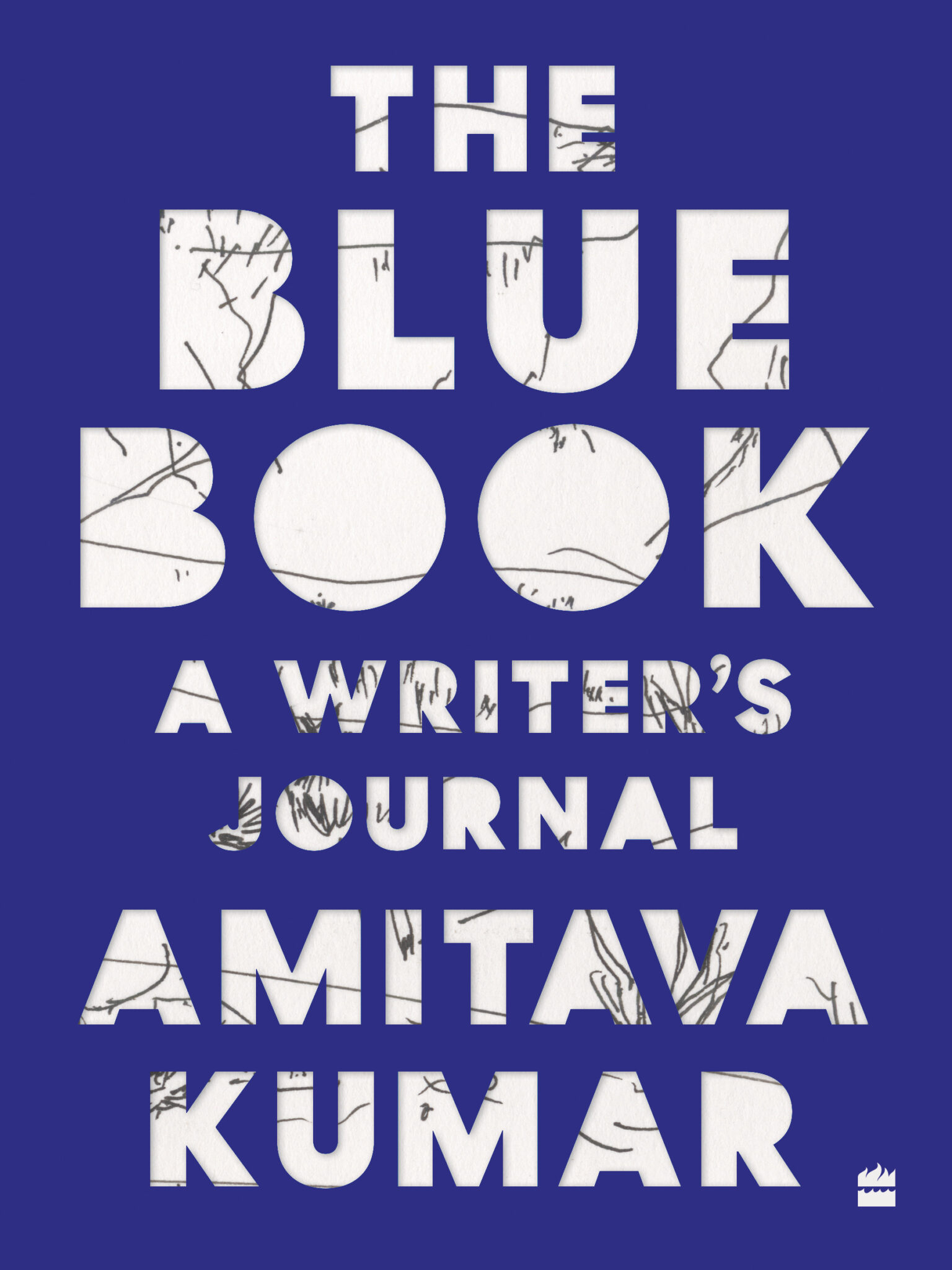
“In those terrible days of the lockdown during the pandemic, we were all waiting. We were waiting for things to be all right. And one day, they will indeed be all right. But the dead will never come back. The businesses that have closed and will not reopen; the dreams dashed; the families and relationships that could not withstand the strain. This is why it is important to note down all the changes in our lives. Write them down in a journal. When we do that, we are recording our own history.”
Drawing as a way of keeping a diary, writing down thoughts in a journal as a way of maintaining a historical record – in watercolours and also in words.
These were resources that Amitava Kumar had been using even before the pandemic arrived. But the task gained urgency just when he felt most isolated and afraid. The Blue Book is a writer’s artistic response to our present world: one that has bestowed upon us countless deaths from a virus, a flood of fake news, but also love in the face of loss, travels through diverse landscapes, and – if we care to notice – visions of blazing beauty.
From one of the acclaimed and accomplished authors of our time, this writer’s journal is a panoramic portrait of the experience, both individual and collective, of the pandemic.
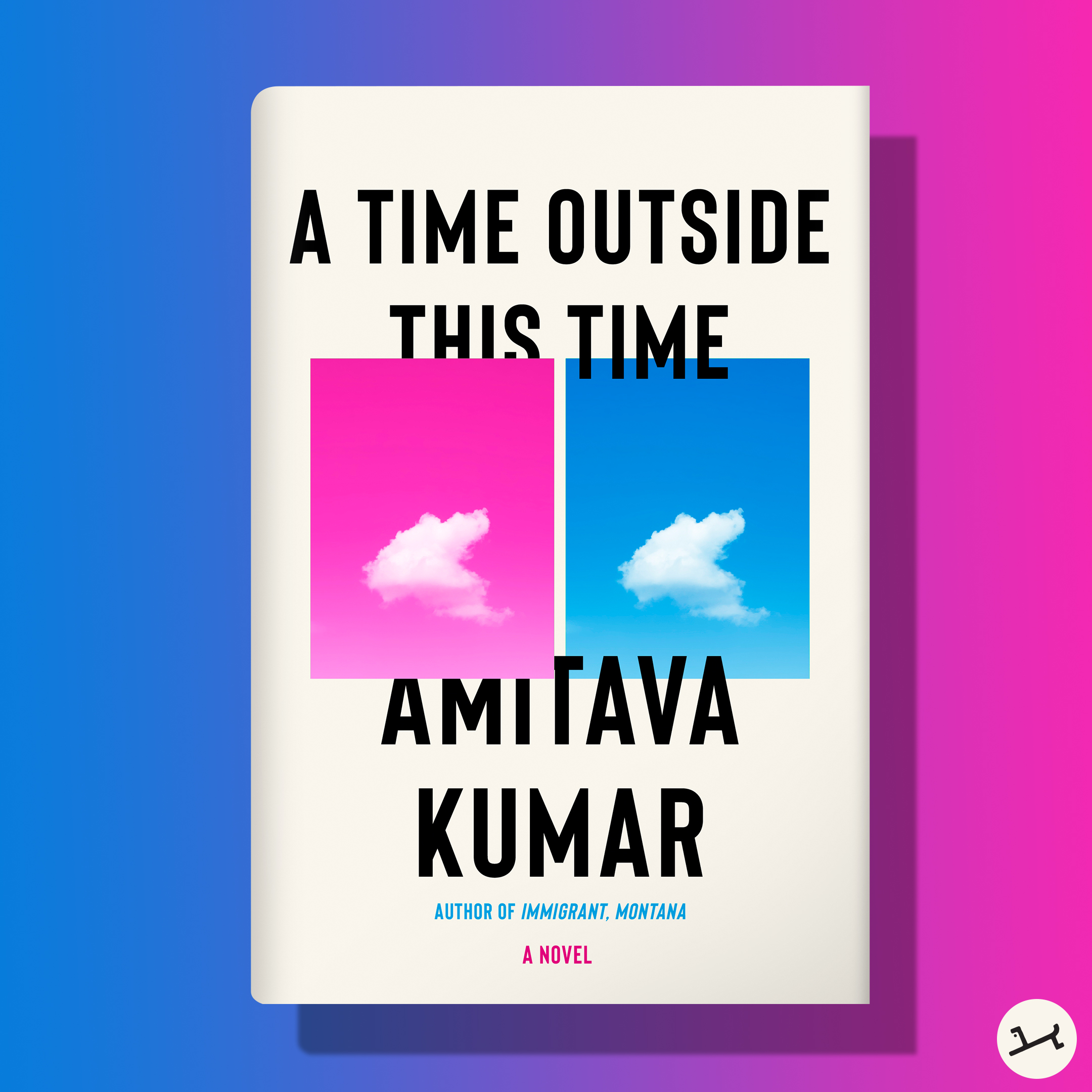
A one-of-a-kind novel about fake news, memory, and the ways in which truth gives over to fiction.
When a writer named Satya attends a prestigious artist retreat, he finds the pressures of the outside world won’t let up: President Trump rages online; a dangerous virus envelopes the globe; and the 24-hour news cycle throws fuel on every fire. For most of the retreat fellows, such stories are unbearable distractions; but for Satya, these Orwellian interruptions begin to crystalize into an idea for his new novel, Enemies of the People, about the lies we tell ourselves and each other. Satya scours his life for moments where truth bends toward the imagined, and misinformation is mistaken as fact.
Sifting through the President’s tweets, newspaper clippings, childhood memories from India, and moments as an immigrant, a husband, father, and teacher, A Time Outside This Time captures our feverish political moment with intelligence, beauty, and an eye for the uncanny. It is a brilliant meditation on life in a post-truth era.
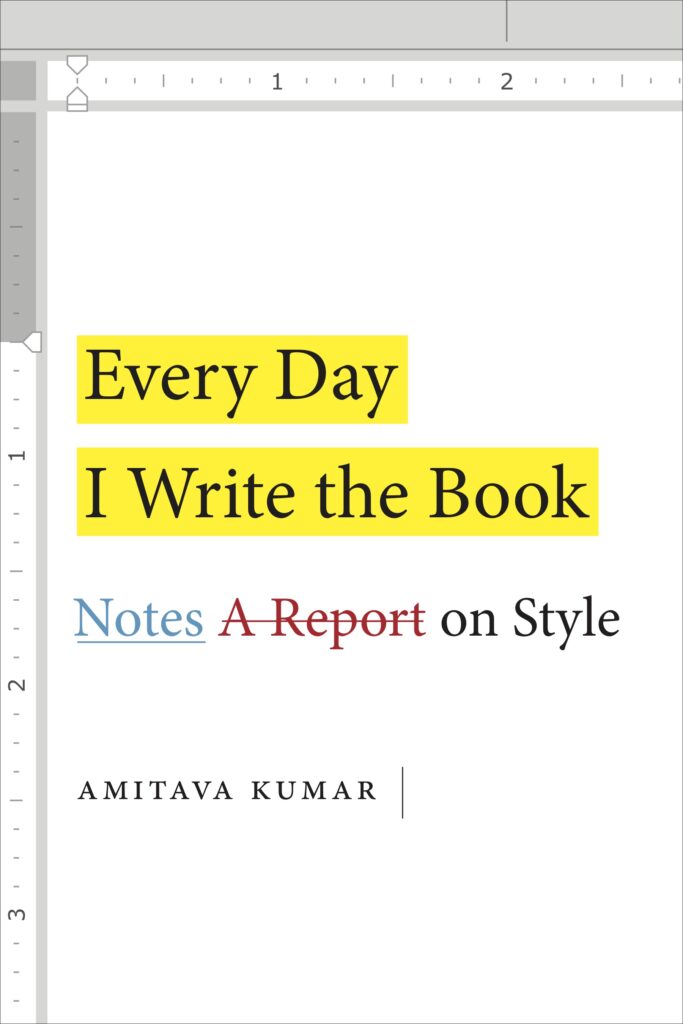
We are living in trying times. In case of emergency, start writing.
Naming it among the favorite books of 2018, Canada’s Globe & Mail says that this book “reinvents the immigrant novel“
“Its aim is not to tell a story, exactly, but to create a portrait of a mind moving uneasily between a new, chosen culture and the one left behind.” — The New Yorker
“consistently entertaining” — The New York Times
Editors’ Choice at the New York Times
In Granta magazine, an essay about the notebooks I used while writing Immigrant, Montana.
“a bold and provocative counter-narrative… We live in a world of #MeToo; this novel fearlessly unmasks some great men, making political stalwarts and revolutionaries stumble down from their pedestals.”—The Guardian
“As cerebral as it is sensual… Immigrant, Montana is intelligent, melancholy, quirky. At a time when feelings run high over which immigrants get to call themselves American, Kailash’s idiosyncratic voice adds a welcome tonic note to the debate.” Boston Globe
“… Immigrant, Montana is razor-sharp, told meditatively and youthfully, and is just as entertaining as it is serious.” PEN America
“…consistently surprising and hilarious… This novel is an inventive delight…” – Publisher’s Weekly (starred review.)
“an intelligent and intimate novel” — The Millions
“thought-provoking” — Entertainment Weekly
“There is originality in Kumar’s use of the autofictional mode, a form which coheres nicely with the novel’s overarching message; in particular, the issue of how migrants are forced to fictionalize about, and to, themselves. This is not to mention, of course, the grotesquerie of state authorities demanding accounts of ‘sufficient’ depredation as a prerequisite for treating migrants with basic dignity… a rich, allusive exploration of immigration and selfhood.” — Totally Dublin
“Amitava Kumar’s Immigrant, Montana is a beguiling meditation on memory and migration, sex and politics, ideas and art, and race and ambiguity. Part novel, part memoir, this book is as sly, charming, and deceptive as its passionate protagonist, a writer writing himself into being.”
–Viet Thanh Nguyen, author of The Sympathizers, winner of the Pulitzer Prize
“Amitava Kumar’s Immigrant, Montana is romantic, natural, gorgeously detailed, and painfully truthful about exile, grad school, sex and the South Asian man. Few novels have captured the mental texture of immigration so accurately.”
–Karan Mahajan, author of The Association of Small Bombs
Amitava Kumar’s new novel brings to mind W. G. Sebald’s work, but Kumar has a deeper curiosity in the borderless-ness of storytelling as a confrontation to all kinds of borders imposed upon his characters by the external and the artificial, as we see more and more in today’s world. Audacious in its scope yet with refreshing attention to detail, Immigrant, Montana is one of those novels that, with each rereading, a reader will unlock another treasure box of joy.
–Yiyun Li, author of Dear Friend, From My Life I Write to You in Your Life
There is a buoyant energy and hilarity to this account of an Indian student seeking the wide world through the women he meets, but one laughs with growing unease as a darker undercurrent is slowly revealed. An unusual, brave twist on the migrant’s tale.
–Kiran Desai, winner of the Booker Prize for The Inheritance of Loss, winner of the Booker Prize
Immigrant, Montana is a delight.
–Hanif Kureishi, author of Intimacy and other novels
In Immigrant, Montana, Amitava Kumar pushes at the boundaries of the novel in the best way— reminiscent of Ben Lerner and John Berger—to open up a completely new, thrilling exploration of a particular immigrant experience, one that is fearlessly cosmopolitan and witty in its natural appropriation of cultural materials.
This is a deeply American novel, one that delves into the messiness of love (and sex!), and the meeting point between identity, character, place, and the constant cultural stuff floating around. I was reminded, strangely, reading it, not only of our contemporary explorers—Teju Cole and Ben Lerner and Lydia Davis—but also … Philip Roth, and so many others who had the skill and talent and, above all, the humor to do whatever was necessary to delve into the lives of their characters, even if it meant breaking with traditions and incorporating new ways of using the materials of the culture: we are, their work says, not only internal beings struggling for love and meaning in our lives, but also complex amalgamation of cultural and historical information. Above all, Kumar’s novel was uproariously funny and deeply moving.
–David Means, author of Hystopia
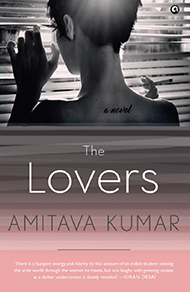
Praise for The Lovers:
“His writing is a sharp blend of fiction, non-fiction, myth-making and history, telling a story that perhaps only Kumar can.” Scroll.
“…a dazzling treatise on the nature of reality, fiction and desire.” The Hindu BLink.
“The Lovers aligns itself with that great tradition of mixed-form novels by writers such as W.G. Sebald, John Berger, Geoff Dyer and Teju Cole…” Sunday Guardian
“Kumar’s storytelling becomes genre-defying, almost playfully so. In the tradition of W.G. Sebald, Patrick Modiano, Péter Esterházy, Kumar too riotously blends the factual, the real, with the fictional…” Mint
“Part fictionalized memoir, part academic discussion of history and memory, and part erotic romance, the novel is riveting. Amitava Kumar’s The Lovers makes its readers think, even against their will.” India Today
“Kumar’s style is reflective and unapologetically allusive to the titans of literary fiction…” HuffPost.
“extraordinary” Open Magazine.
Report in the Indian Express on the Delhi launch of The Lovers. And here’s the review in the Indian Express.
An author interview in DailyO.
Amitava Kumar on the modern love-story.
“An exuberantly inquisitive collection of essays.” (Kirkus Review)
“These are the very best sort of essays: the kind in which the pleasure of reading derives from the pleasure of following a writer’s mind as it moves from subject to subject, making us see connections we might otherwise have been unaware of. Often a single paragraph contains such a story or detail so arresting that the reader must pause to appreciate it before moving on.”(Francine Prose, author of Reading Like a Writer)
“Stimulating, wide-ranging, learned and funny—exactly what one wants from a book of essays.”(Geoff Dyer, author of But Beautiful: A Book about Jazz)
“Amitava Kumar is a sensitive, probing, erudite writer, always ready to question others and himself. It turns out his ceaseless curiosity and skepticism is the best way to write about India in all its complexity and heterogeneity—his is a fascinating mind turned towards a crucial subject.”(Edmund White, author of Inside a Pearl: My Years in Paris)
“While Kumar writes for a mainstream audience, he isn’t interested in catering to mainstream assumptions of any kind…” Los Angeles Review of Books
Ten Best Books by Academic Publishers in 2015
“Superb collection of essays… beautifully real.” OPEN Magazine
“Instead of asking that hammer-beaten question—What is the real?—Kumar sets out to map it.” Mint-Lounge
“While reading Lunch with a Bigot, I couldn’t shake Kenneth Burke’s now forgotten formulation of literature as ‘equipment for living.'” Staff Pick at Flavorwire
“Kumar is an artful, frank and clean-cut writer, with a compassionate curious mind and a dry sense of humor.” Shelf Awareness
“A Matter of Rats is disconcerting, sophisticated, and recklessly courageous. The stories gathered here bring Patna to life, and accrete to an almost unbearable intensity.”—Teju Cole, author of Open City
“A Matter of Rats is a wonderfully witty, poignant, and idiosyncratic performance, full of surreal details and the oddest and most delicious digressions. Part memoir, part history, part biography of a rat-infested city in spectacular decline, Amitava Kumar has produced an enjoyably eloquent, gossipy, and discursive portrait of his love/hate relationship with his benighted birthplace.”—William Dalrymple, author of City of Djinns and other books
“In A Matter of Rats, Amitava Kumar writes with such generosity, intelligence, precision and wit that we come to recognize the world he portrays and the heart he excavates as our own. In prose that’s both page-turner grounded and blow-your-mind perceptive, Kumar brings his childhood home of Patna, India vividly to life. A Matter of Rats will make you laugh and cry and shake your head in astonishment and horror and delight. This is a book for all of us, now.”— Cheryl Strayed, author of Wild
“Pound for pound, Amitava Kumar is one of the best nonfiction writers of his generation. . . . No one in India writes a more fine-grained and quietly evocative prose. . . . In his marvelous new work A Matter of Rats: A Short Biography of Patna, Kumar puts a stethoscope to his hometown and takes a reading of its heart.”— Time Out Delhi
“Perceptive and soulful … meditation on the global war on terror and its cultural and human repercussions.”
The New York Times
A Foreigner… gets starred review and is a staff pick of 2010 at Publisher’s Weekly:
Kumar’s study (think Jane Mayer’s The Dark Side meets Coco Fusco’s protest art) reveals how deeply the figure of the “terrorist” has seeped into our imaginations by brilliantly synthesizing straight reportage—on the Mumbai blasts and the trials of two putative terrorists in New York—and contemporary conceptual art’s responses to “the war on terror.”
“To know a country so you have its dirt beneath your fingernails is a difficult thing. Read Nobody Does the Right Thing and you will have India beneath your fingernails.”—Akhil Sharma, author of An Obedient Father
“Nobody Does the Right Thing is a deeply compassionate novel about art, life, and everything that lies in between.”—Laila Lalami, author of Secret Son
(also published in the US as Nobody Does the Right Thing)
“To know a country so you have its dirt beneath your fingernails is a difficult thing. Read Nobody Does the Right Thing and you will have India beneath your fingernails.”—Akhil Sharma, author of An Obedient Father
“Nobody Does the Right Thing is a deeply compassionate novel about art, life, and everything that lies in between.”—Laila Lalami, author of Secret Son
“I went to my high school in Patna, India, and asked kids to write letters to children their own age across the border. Then, I visited my wife’s high school in Karachi, Pakistan, and asked the kids to write letters in response. One student began with charming candor: “Dear Indians, First of all hello!! I am a Pakistani Muslim and I want to inform you that you are liars.” — From Husband Of A Fanatic
In ”Husband of a Fanatic,” his challenging and at times eloquent rumination on Hindu-Muslim tensions in India and its diaspora, Amitava Kumar often summons the dark humor that South Asian secularists use to combat their sense that the battle is not going their way. He opens with his encounter with Jagdish Barotia, a member of the militant group Hindu Unity, who immigrated to the United States over 30 years ago and whose violence of feeling is absurd, even pitiful, because he is doomed to live among Muslims in a multiracial part of Queens. Kumar lets Barotia’s grossness stand unadorned and thereby lampoons it. ”On the phone,” Kumar recalls, ”he had called me a haraami, which means ‘bastard’ in Hindi, and, after clarifying that he didn’t mean this abuse only for me as a person but for everyone else who was like me, he had also called me a kutta, a dog.” — Christopher De Bellaigue, The New York Times
“On an impulse, I decided to read Amitava Kumar’s Bombay, London, New York again. I read it in a hurry when it first came out in 2002, noting with pleasure that it was, among many other things, the first really good book on reading written by an Indian. Reading it this time, I discovered with excitement that it is not only still the best Indian book about how and why we read but also an original, riveting piece of non-fiction.” — Pradeep Sebastian, The Hindu
“This is a work of luminous imagination and tenderness. Amitava Kumar is a startling story teller: that rare cultural critic who writes from and for the heart. When last did any academic so successfully harmonize a love of language with a passion for ideas? This book will surely establish Kumar as one of the most eloquent, searching public intellectuals of his generation.” — Rob Nixon, Rachel Carson Professor of English, University of Wisconsin, Madison and author of Dreambirds
Passport Photos, a self-conscious act of artistic and intellectual forgery, is a report on the immigrant condition. A multigenre book combining theory, poetry, cultural criticism, and photography, it explores the complexities of the immigration experience, intervening in the impersonal language of the state. Passport Photos joins books by writers like Edward Said and Trinh T. Minh-ha in the search for a new poetics and politics of diaspora.
Organized as a passport, Passport Photos is a unique work, taking as its object of analysis and engagement the lived experience of post-coloniality–especially in the United States and India. The book is a collage, moving back and forth between places, historical moments, voices, and levels of analysis. Seeking to link cultural, political, and aesthetic critiques, it weaves together issues as diverse as Indian fiction written in English, signs put up by the border patrol at the U.S.-Tijuana border, ethnic restaurants in New York City, the history of Indian indenture in Trinidad, Native Americans at the Superbowl, and much more.
